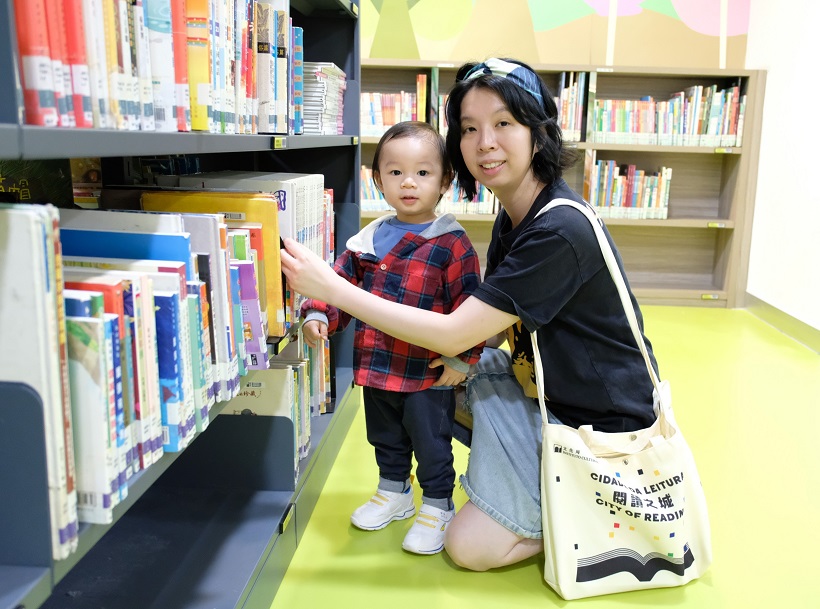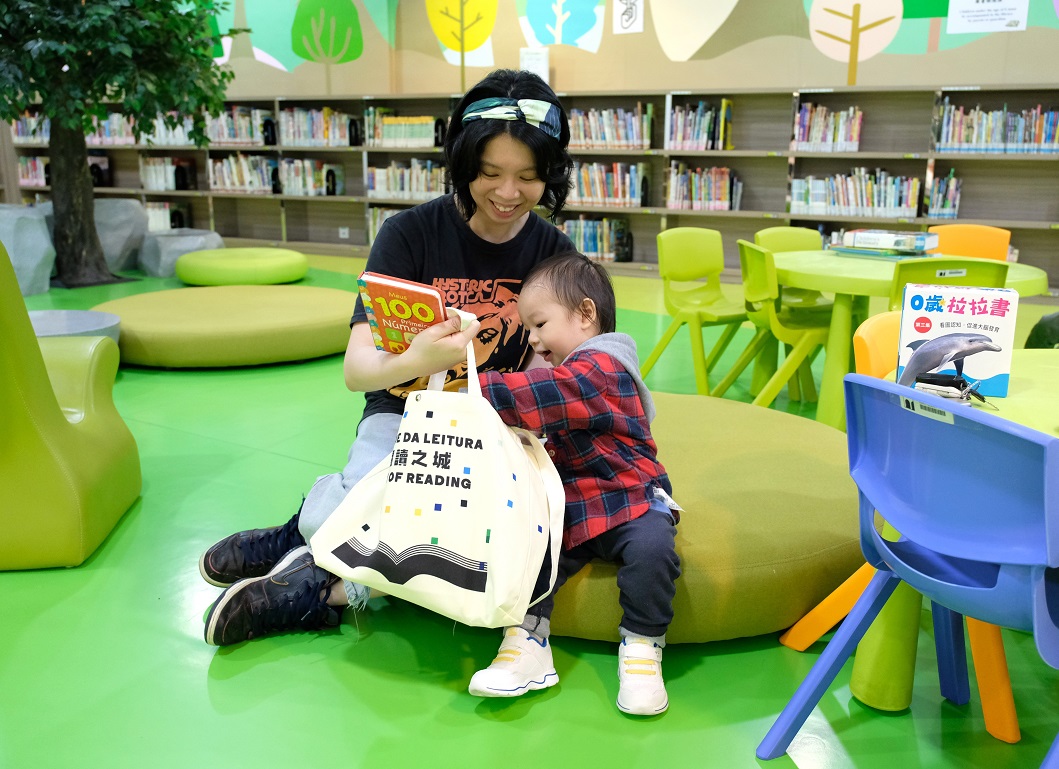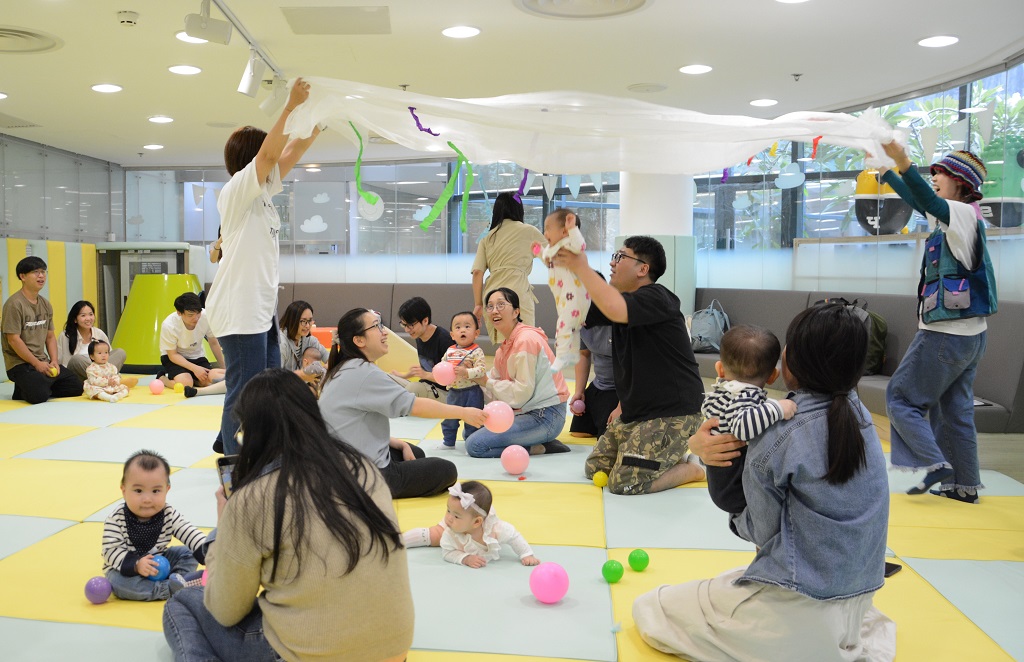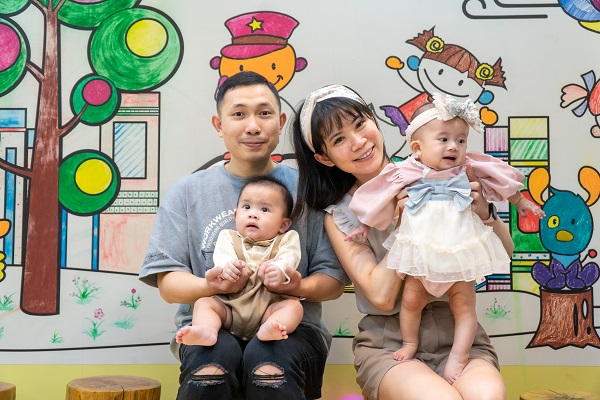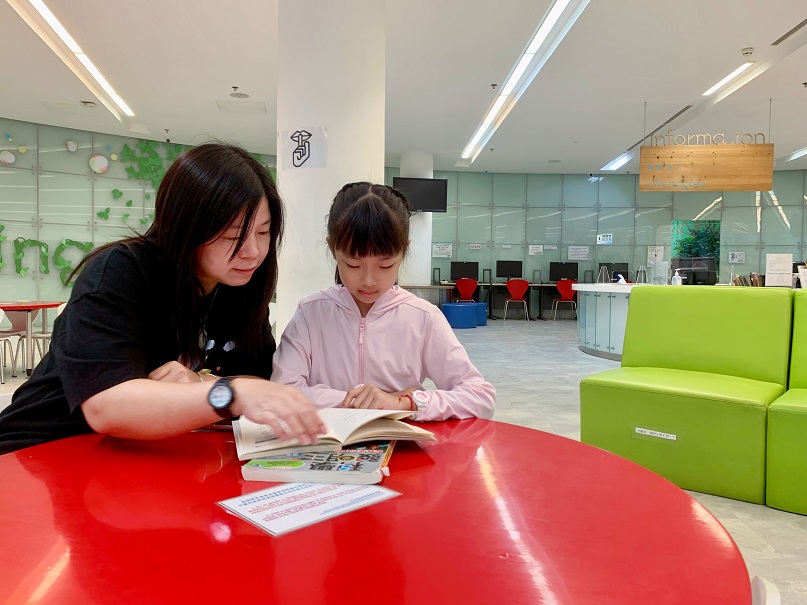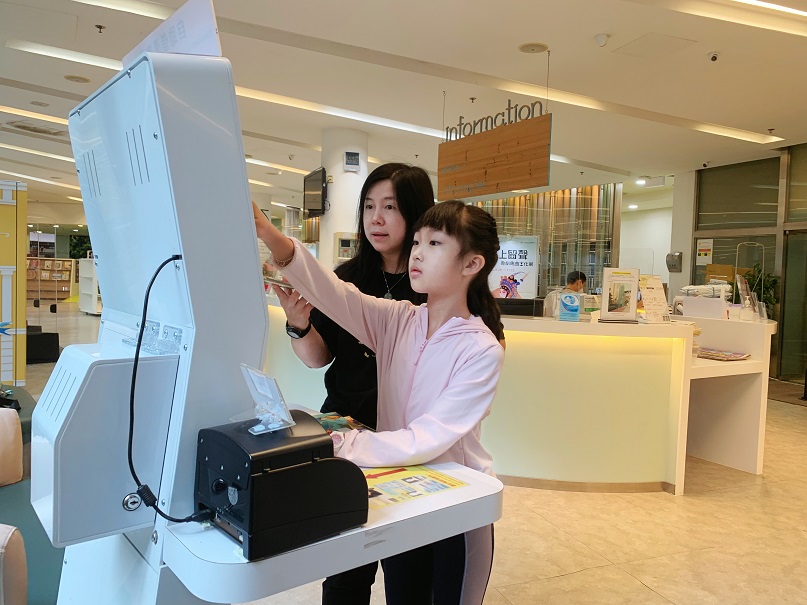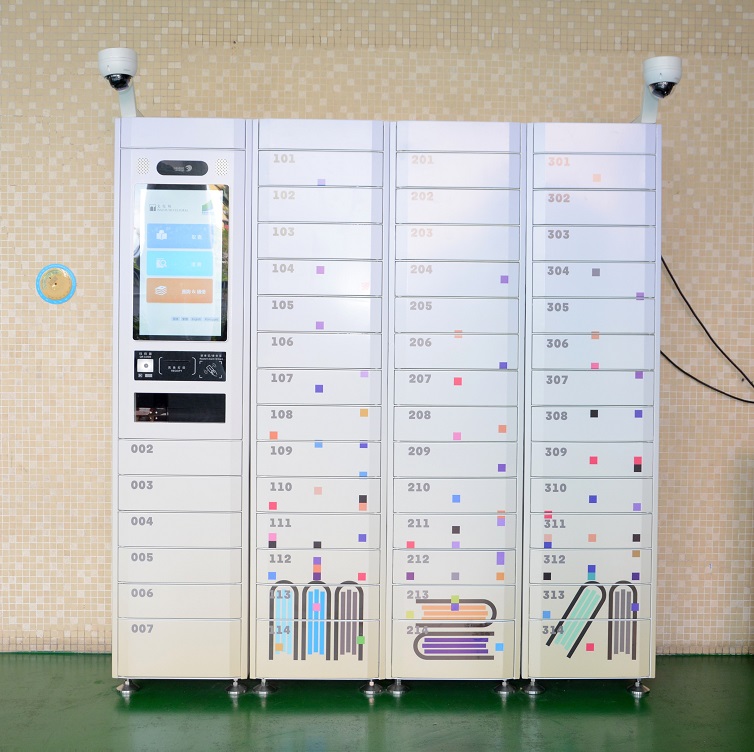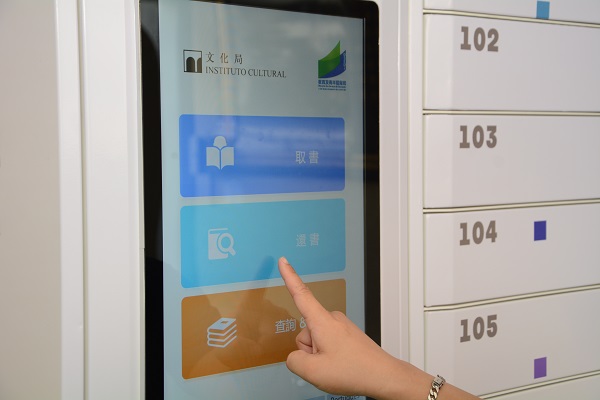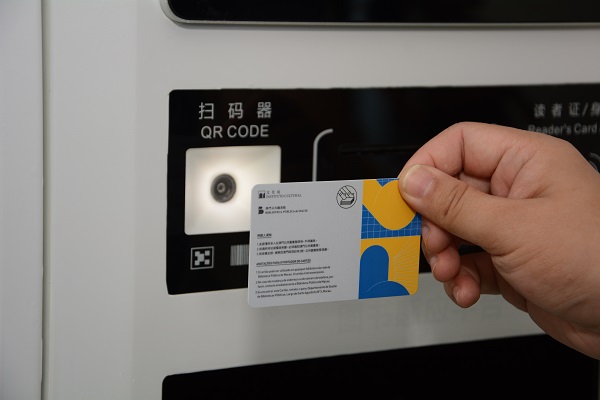Since its establishment in 2015, Taipa Library has not only provided a reading experience for all age groups but has also dedicated facilities for infants, toddlers, and their parents, including child-friendly toilets, nursing rooms, and baby stroller parking areas. These facilities aim to provide a safe and beautiful reading space for parent-child to shared reading. In order to continuously enhance the parent-child reading experience, this year, Taipa Library has added the “Baby Book Club ─ the Parent-Child Space of Infants and Toddlers,” specifically designed for babies aged 0 to 18 months and their parents. From the spatial layout to the hardware and software facilities, everything has been revamped to welcome young readers, accompanying their growth. Today, let us follow the footsteps of this article and explore the attractive parent-child interactive elements in this space!
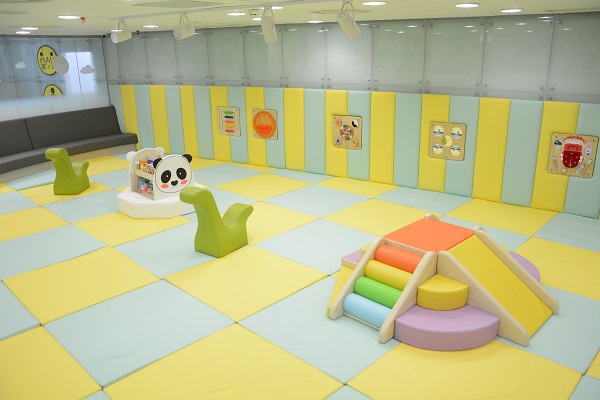
Taipa Library has added the “Baby Book Club ─ the Parent-Child Space of Infants and Toddlers” this year.
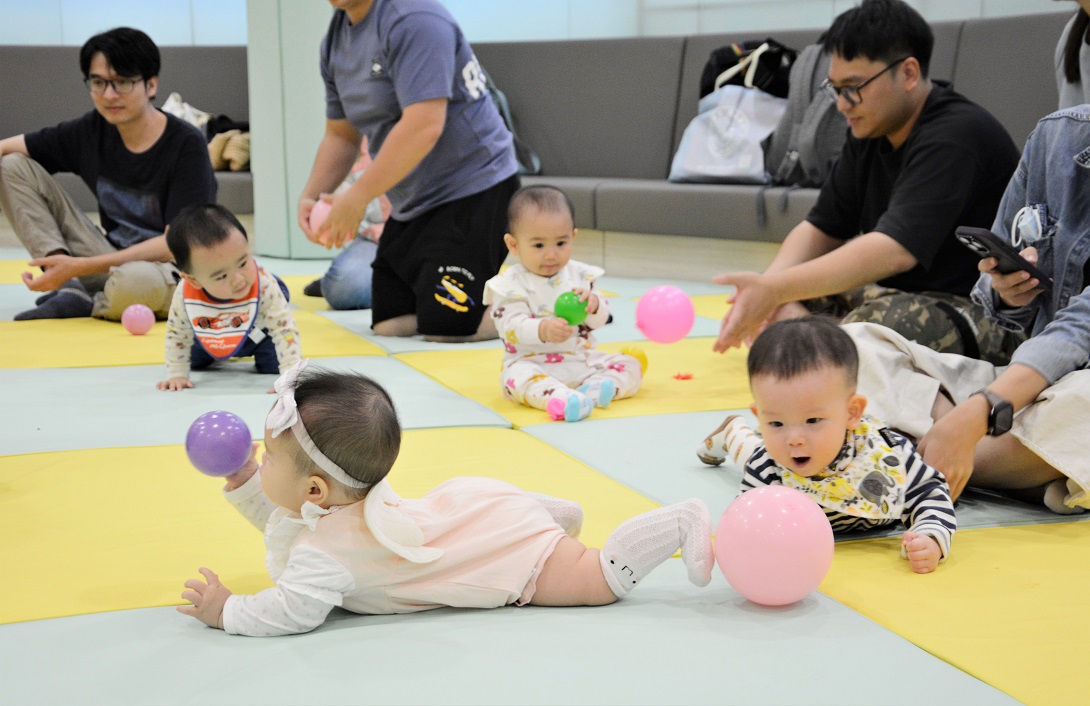
Babies crawl with excitement inside the “Baby Book Club.”
Upon entering the “Baby Book Club” at Taipa Library, the journalist is immediately drawn by the soft and cushiony texture of the floor mat. Mindful of the growth and developmental needs of infants and toddlers, the floor of the "Baby Book Club" is covered with a soft mat. This design caters to children’s innate inclination to sit, lie down, and crawl around freely. Not only is it conducive to organizing parent-child interactive activities, but also allows babies during the crawling phase to “showcase their skills” in such a comfortable and secure environment.
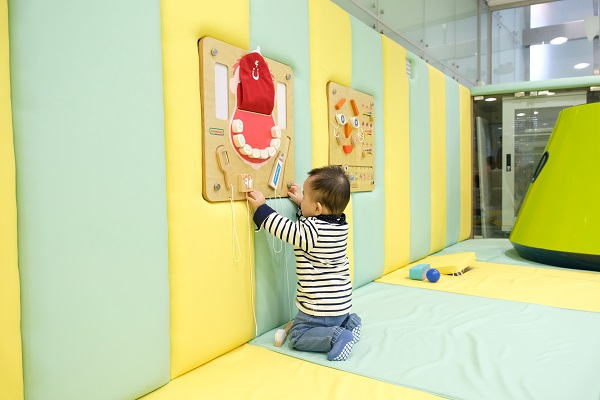
Babies can’t wait to try out eagerly the amusing early educational devices!
The “Baby Book Club” is not only a play area for children but also equipped with a range of early education devices that support their growth. During the infant and toddler stage, children love exploring and learning their surroundings and objects with their hands, eyes, ears, and feet. The tactile and cognitive touch devices attached to the walls attract them to touch and move around, inspiring their understanding of the world.
The space also offers a variety of children’s books, including cloth books, interactive books, and picture books. The contents are so engaging and enjoyable that can guide children in their learning and fostering parent-child shared reading. They help children create a sense of familiarity with libraries and cultivate their lifelong love for books. With such a vibrant and diverse parent-child space, seize the opportunity this weekend and bring your kids to experience it!

